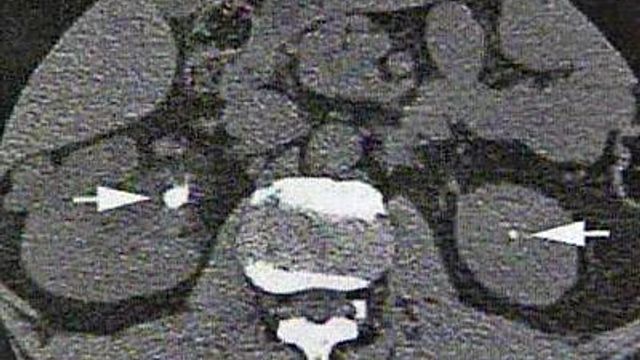Health Team
Diet, genetics are factors in pediatric kidney stones
Some people are genetically prone to kidney stones. The most common ones are formed when oxalate – a byproduct of certain foods – binds to calcium in the urine.
Posted — UpdatedRALEIGH, N.C. — While there are no reliable data on the number of kidney stone cases among children, many hospitals report such an increase that they have created pediatric kidney stone centers.
Children with a family history of kidney stones are most at risk, but diet plays a big role as well.
Brady Whitlow, 13, has a family history of kidney stones. Three years ago, Brady had her one.
“This summer, about July, I had another one,” Brady said.
Some people are genetically prone to kidney stones. The most common ones are formed when oxalate – a byproduct of certain foods – binds to calcium in the urine.
Rex Healthcare pediatric urologist Dr. Tim Burkowski said stones can be amazingly small. They show up as bright white spots on CT scans.
Stones sometimes leave the kidney, lodge in the ureter, block urine flow and cause inflammation and pain. It can take as long as a couple weeks to pass a stone.
In addition to family history, doctors say the two other big risk factors are not drinking enough clear fluids and having too much salt in the diet.
“Try(ing) to stay away from things like Coca-Cola or dark tea is probably a good idea, too, because they actually can add to the stone formation,” Burkowski said.
Children with a family history of kidney stones should be especially careful with their diets. Brady’s family carefully watches what she eats and makes sure she drinks plenty of water.
All children could benefit from drinking more water – being well hydrated – because dehydration is a big risk factor.
A sign of sufficient hydration is clear urine. Darker yellow or orange urine is a sign of dehydration.
• Credits
Copyright 2024 by Capitol Broadcasting Company. All rights reserved. This material may not be published, broadcast, rewritten or redistributed.





